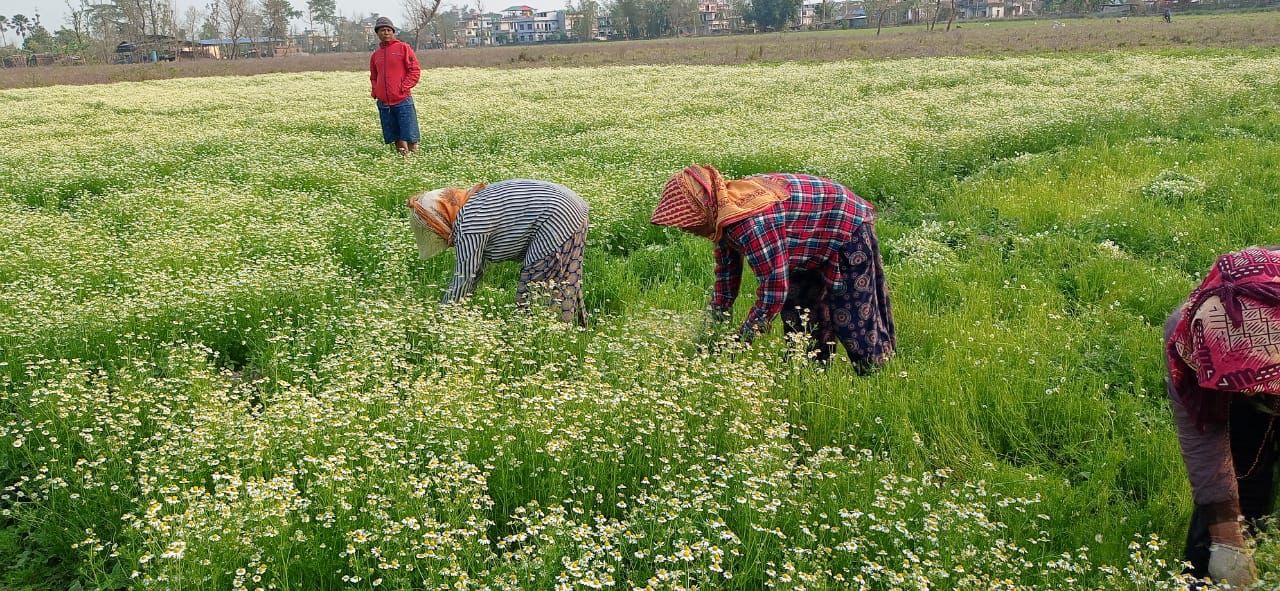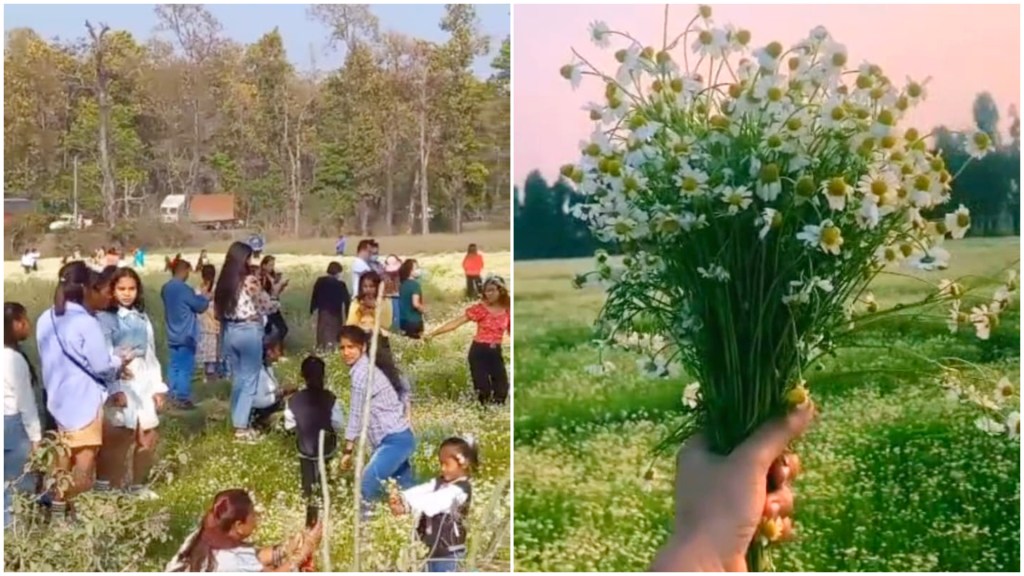Himalaya Dhungana has encountered many problems while working in a government-run herb farm in Nepal. “There are wild animals who eat these expensive flowers,” Dhungana told VICE World News, referring to his prized crop: chamomile. “Sometimes, there are problems with irrigation.”
But since spring, Dhungana said he has been left aghast by TikTokers. Scores of TikTok content creators have been flocking to scenic chamomile fields in the country in hopes of making viral content. Farmers say the intruders have been trampling on their precious – and expensive – plants, setting them back by tens of thousands of dollars in damages.
Videos by VICE
“These TikTok influencers come to our chamomile fields and make viral videos to make money,” said Dhungana, who manages the farms at Herbs Production and Processing Co Ltd in Nepal’s Sunsari district. In April, Dhungana’s farm saw over $20,000 worth of loss largely because of crop damage. Dhungana said it all started in the second week of March, when a local woman’s video of herself at a chamomile field went viral.
“Things have gone out of control since then,” he said.
Among Nepal’s abundant reserves of medicinal and aromatic herbs, chamomile products contribute massively to the global trillion-dollar wellness industry. The global market for chamomile is expected to reach $412 billion in 2025.
In one viral video on Facebook, a woman farmer is seen yelling at intruders for trampling on the fields or plucking chamomile flowers. This, while the person taking the video laughs. In other videos, content creators are seen mocking farmers trying to drive them out of the farm. “They don’t listen to us, rather they fight with us and upload videos of those fights on social media,” Dhungana said.
Nepal authorities have been banning TikTok creators from several sites including tourist and religious ones, after many complained they were being a nuisance.
Chamomile farming is a significant part of the country’s agrarian sector, which engages an overwhelming 66 percent of its population, according to UN’s Food and Agriculture Organisation. Farming contributes one-third to the country’s GDP and its economy. Plants such as chamomile bring a huge return on investment for farmers and the government. It has also pulled many farmers out of poverty.
“These people don’t seem to understand how valuable chamomile is for us,” Dhungana said. “This is not just another ordinary plant.”
Over the last decade, many farmers have been converting their fields to farm herbs such as chamomile to earn more money. Chamomile farming, farmers say, is not very complicated, and the government supports farmers by giving out seeds for free.
“Earlier, I used to plant paddy and wheat. Even after toiling so hard, I could hardly make enough for survival,” Sher Bahadur Bista, a farmer from the rural district of Shamshergunj, told Nepali news outlet MyRepublica. “[Now after making profits from chamomile farming], my boys are getting a good education. My wife and I are at ease.”
“Herbs have changed not just my life but have given prosperity to many here,” Bista added.
In many areas, chamomile farming even helped local women farmers become financially independent in the otherwise patriarchal society.

For now, the social media trend is making farmers take measures to avoid further destruction of their chamomile fields. One farm in Morang, in eastern Nepal, decided to harvest their crops early to get ahead of the TikTokers. Another farmer uploaded a warning on TikTok, saying, “Whoever comes here to take pictures and destroys the crops will be punished.”
In the upcoming chamomile farming cycle, which starts in November, Dhungana plans to make his farms restricted zones. Violators would be required to compensate the farmers for the loss or damage done to their plants.
Follow Pallavi Pundir on Twitter.






